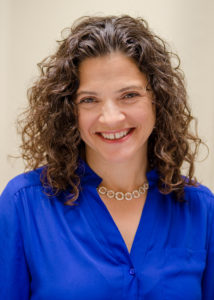
Dr. Lauren Cattaneo (pronouns: she/her) earned her doctorate in Clinical/Community Psychology from the University of Maryland (College Park) in 2001, and joined the faculty of the Clinical Psychology Program at George Mason University in 2003. Dr. Cattaneo’s interest in psychology centers on its relevance for addressing pressing social problems. She is broadly interested in how individuals and communities interact with institutions, practices and policies meant to serve them, and the ways those interactions facilitate or block resilience and empowerment. She values partnership with community members and organizations in her work, and she prioritizes research with practical implications. Within the area of intimate partner violence, Dr. Cattaneo’s research has focused on the key constructs of empowerment and survivor-centered practice to explore the best ways to assist survivors, and she has lectured, consulted and published widely on those topics. Dr. Cattaneo is also interested in the ways in which higher education can both embody and catalyze civic awareness and engagement, maximizing its potential role in moving individuals, communities and institutions toward a more just society. She has lectured, published, and engaged in curriculum development and university initiatives related to that topic.
Dr. Cattaneo is passionate about and energized by her teaching and mentorship, both inside and outside of the classroom. She enjoys working with her graduate and undergraduate student advisees both one-on-one and as a lab, and understands her role as facilitating students’ growth toward their own evolving goals. She is active and innovative in graduate and undergraduate teaching, both in the classroom and in curriculum design and implementation. She has worked at the graduate, undergraduate, and university levels to develop and implement justice-oriented curriculum, and she is a trained Inside-Out instructor. Dr. Cattaneo has won awards for excellence in teaching, mentorship and community-based work from George Mason University and from the Society for the Psychological Study of Social Issues.